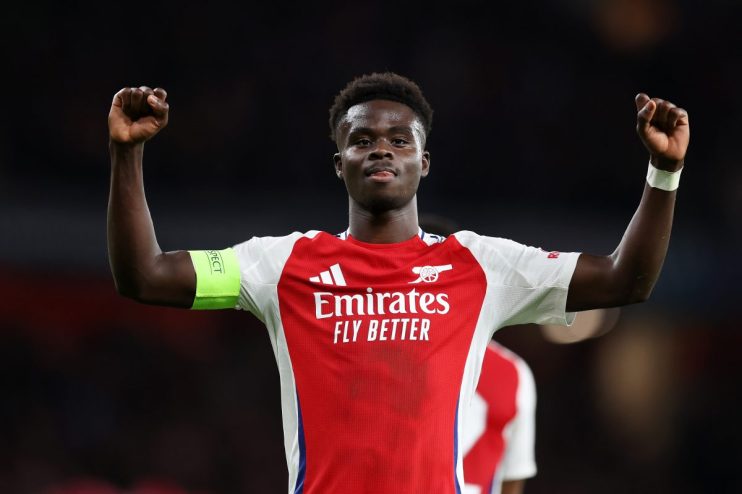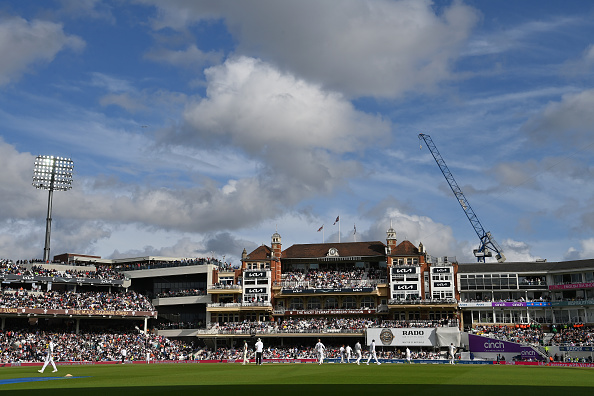Arsenal are overachieving in the Premier League, but do fans appreciate it?

In a parallel universe, Arsenal have already beaten Manchester City to the title. Forget Pep and Mikel’s inflamed war of words in this season’s scrap for the Premier League trophy; the Gunners have bagged the prize for outperforming their playing budget.
Football, though, must ultimately be about fans’ dreams, not investors’ and bank managers’ bottom lines. Worth remembering now the money rules are about to be rewritten.
The analysts at Twenty First Group publish an annual Overachieving Football Clubs Ranking. The latest edition sorts 709 teams from top divisions across the major – and not so major – football playing nations.
England’s Arsenal are top of the pile. Muaither, relegated from the Qatar Stars League last season, prop up the table.
The Overachieving analysis mixes on-field outcomes with financial metrics to come up with an over/under-performance stat for each club.
Results between teams that have met in international competition allow Twenty First’s statisticians to place all clubs into a single ladder, even if many of them have only competed domestically.
In topping the table, Arsenal are said to have overachieved by 25 per cent. Their nearest English rivals in the ladder, Manchester City, have overachieved by ‘only’ 18 per cent across the past two seasons.
| Rank | Club | Overachievement % |
| 1 | Arsenal | 25 |
| 2 | Ferencváros | 24 |
| 3 | Slavia Praha | 24 |
| 4 | Feyenoord | 24 |
| 5 | Twente | 23 |
| 6 | PSV | 23 |
| 7 | Sporting CP | 22 |
| 8 | Union Saint-Gilloise | 22 |
| 9 | Porto | 21 |
| 10 | Palmeiras | 20 |
Arsenal top the pile
“Arsenal are currently going into games with a close to 75 per cent win probability on average, but based on spending we’d have expected them to be closer to 50 per cent, which is what teams finishing fourth or fifth have tended to achieve and is in line with their wage rank in the Premier League,” said Omar Chaudhuri, Twenty First’s Chief Intelligence Officer.
It is hard to discern many geographical patterns in the overall table. Individual examples of excellent financial stewardship in the pursuit of glory are evident. And the odd stinker.
Three Dutch clubs make the top seven. France’s PSG, by contrast, generate a stark 30 per cent underperformance. Unsurprisingly, Saudi and Qatari clubs feature heavily at the wrong end of the table, their expensive squad-building yet to be reflected in commensurate performances on the pitch.
The standard media narrative surrounding many of the Premier League clubs is borne out by the numbers.
Manchester United squandering riches
Savvy, data-driven ownership of Brentford and Brighton is driving overperformance; Newcastle may be held back by the league’s financial rules from unleashing the full financial might of their Saudi owners but are already outperforming; Chelsea and Manchester United are both squandering riches on footballing talent that they haven’t been able to make gel over the past few seasons.
Spending other people’s money is a perennial fantasy exercise for football fans craving immediate sporting success. Having prudent owners may guard against a financial apocalypse in the event that poor performances leads to ruinous relegation, but tension at both ends of the table tends to trigger fan demands for ever more transfer spending.
Over time, repeatedly avoiding the drop while operating on a tight budget will drain supporter goodwill. “Where is the ambition?” becomes the cry. Ditto regularly coming up just short at the top behind a bigger spending rival.
The combination of years of inflation and a string of clubs pushing at the boundaries of financial regulation has left the Premier League’s compact between its members perilously close to breaking.
Manchester City cases
The various cases involving City are the most obvious manifestation of the pressure on the fault lines in the league’s structure. But these shouldn’t be considered isolated issues whose eventual resolution (whatever the outcomes) will leave business as usual.
For the biggest clubs, international competitiveness is crucial, for that is where true riches and glory are believed to lie. Don’t believe that? Just remember their short-lived and ill-fated push for a European Super League.
On the other side of the Manchester City cases, expect a rewriting of the Premier League’s financial rules such that clubs will be able to spend significantly more on playing staff in pursuit of European domination.
Canny stewardship will command an even greater premium as a result, especially for those clubs with far shallower pockets than teams with sovereign wealth owners. Fan recognition of the value of canniness will likely be no easier to come by though in this even riskier world.
You can find out more about Twenty First Group’s rankings here
The circle of life
To the Oval for wheelchair rugby meetings a few days after the end of the cricket season. Sporting arenas are always strange places off-season.
At Surrey’s home, heat lamps were ablaze all day above reseeded pitches and a stream of people flowed through the Alec Stewart Gate on various missions, bearing testimony to the county’s success in monetising its venue all year round.
It will be fascinating to see if – and how quickly – the new Indian owners of Hampshire can topple English cricket’s dominant force. After all, they have bought themselves their own impressive venue that generates vital revenues outside cricket.

Build it, but will they come?
The hottest ticket in British sport next year will be the final of the Women’s Rugby World Cup at Twickenham on 27 September.
A revenge encounter for England’s Red Roses against the New Zealand Black Ferns, anyone? Expect a sell-out well in advance.
This will be a far cry from the smatterings of spectators in massive stadia for the current WXV competition. Not a great advert for the women’s game from World Rugby.
It’s as if the globe’s leading players are being showcased in a return-to-Covid era, their voices echoing off serried ranks of empty seats for a remote TV audience.
And it’s not just rugby. The ICC was unlucky to lose Bangladesh as the host of its Women’s T20 World Cup as recently as August. Crowds there would likely have been bigger than those pitching up at the matches in the emergency substitute, the United Arab Emirates.
Unlike the rugby, there are enough excited fans for the TV directors to zoom in on when wickets fall, but the backdrop of sparsely populated stands still looks grim from the sofa of a casual telly watcher with fingers itchy on their remote control. (But then again, remember the low attendances for this year’s men’s T20 World Cup in the USA and West Indies…)
The players in both sports deserve better.
Ed Warner is chair of GB Wheelchair Rugby and writes his sport column at sportinc.substack.com
